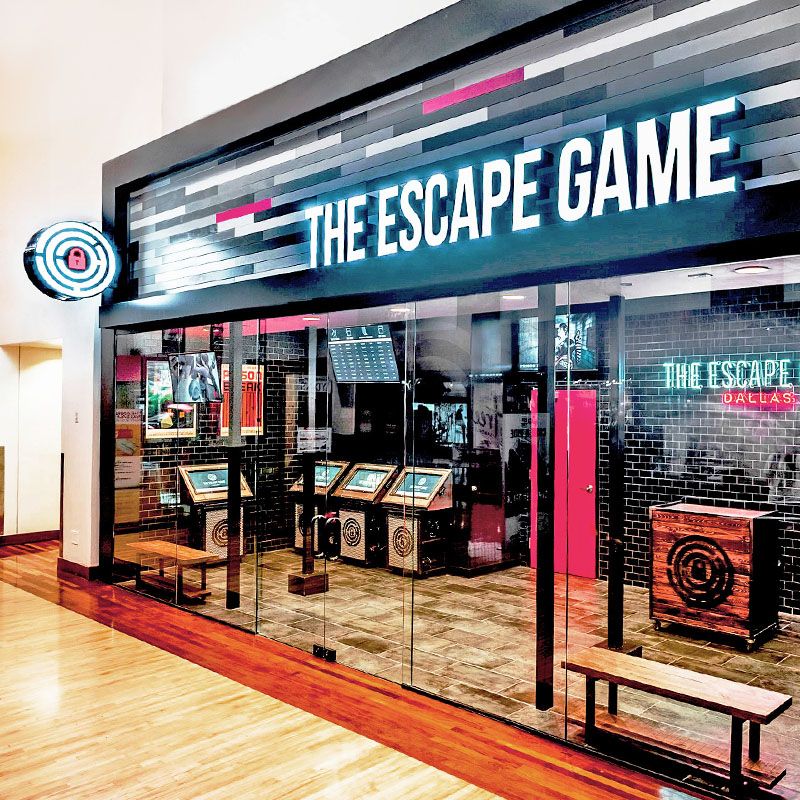Group Tasks at Minneapolis Escape Room-- Perfect for Friends and Family members
Team Techniques: Exactly How to Work together Effectively in an Escape Room
Navigating the complexities of a retreat area demands greater than plain excitement; it needs a well-coordinated technique grounded in clear communication, strategic role assignments, and proficient time administration. Teams must proactively pay attention to every member's insights, assign roles that straighten with specific staminas, and maintain regular check-ins to make certain emphasis and prevent redundancy. By cultivating a setting that values communication and versatility, teams can considerably heighten their performance and success prices. The nuances of these approaches can change the experience, however exactly how specifically can they be implemented to optimize the possibility for success?
Establish Clear Interaction

To assist in clear communication, it is necessary to mark a central factor of get in touch with for information circulation. This role entails summarizing searchings for and suggested techniques to make certain everybody remains on the very same page. In addition, adopting an organized method to conversations can avoid disorderly exchanges. For example, quick, focused updates from each staff member can maintain the team notified without frustrating them with information.

Assign Duties Purposefully
While clear communication establishes the structure for efficient synergy, designating roles purposefully makes sure that each employee's staminas are utilized successfully. In a getaway area situation, the time-sensitive and intricate nature of difficulties demands a well-organized approach to job delegation. By identifying and leveraging private competencies, groups can optimize their analytical capabilities and improve overall performance.
First, assess the special skills and qualities of each participant. A person with a keen eye for information could excel in discovering surprise objects, while a rational thinker can be better suited to fixing problems. It's equally essential to have a leader that can oversee progress, handle the timeline, and make crucial telephone calls when required. This function usually requires strong organizational and interpersonal abilities.
2nd, make certain that roles are versatile and versatile. As brand-new obstacles arise, the group has to be able to pivot, reallocating tasks as needed. This versatility assists keep momentum and stops traffic jams that might occur due to rigid role assignments.
Ultimately, a tactical method to anonymous role project not only makes best use of the toughness of each group participant however also fosters a natural setting, driving the team towards a successful retreat.
Use Diverse Skills
Acknowledging and utilizing the varied skills within your group can dramatically raise your efficiency in a getaway area. Each employee brings special strengths to the table, and properly leveraging these abilities can expedite analytical and enhance general efficiency. As an example, a staff member with solid analytical skills may succeed at analyzing complex codes or patterns, while one more with eager observational capacities may swiftly spot concealed ideas that others could neglect.
Reliable interaction is key to making use of these diverse skills. Motivate employee to voice their understandings and concepts promptly, guaranteeing that all prospective remedies are considered. This inclusive method cultivates a vibrant environment where creativity and vital reasoning can prosper. In addition, assigning tasks that align with each member's staminas can protect against traffic jams and ensure that progress is continuous.
Additionally, variety in skills typically equates to diversity in thinking designs, which is invaluable in an escape area setup. While some obstacles might need logical reasoning and accuracy, others could gain from creative and lateral thinking. By recognizing and leveraging this diversity, teams can deal with a more comprehensive range of challenges better, thus increasing their opportunities of a successful escape.
Manage Time Properly

First, allot first mins for a fast survey of the space. Identify visible puzzles and separate jobs based upon staff member' strengths, guaranteeing that nobody is still. Establish interior time checkpoints to examine development periodically; as an example, purpose to have half the problems fixed by the mid-point of the game. This practice can help maintain the group focused and prevent time from escaping undetected.
Furthermore, avoid passage vision. If a challenge is taking too long, revolve employee or relocate on to another obstacle, returning later more with fresh perspectives. Interaction is critical-- maintain everybody updated on fixed puzzles and continuing to be tasks to avoid repetitive efforts.
Last but not least, utilize any kind of hints or ideas sparingly but tactically - best escape room. Knowing when to request help can conserve important time. By sticking to these time management concepts, groups can substantially improve their possibilities of a successful and satisfying escape space experience
Debrief and Mirror
Reflection is an essential element of group development and renovation in the context of escape areas. Once the difficulty is finished, whether successfully or otherwise, it is crucial for the team to take part in an organized debriefing session. This process enables group members to assess their efficiency, recognize strengths, and determine areas for improvement.
Begin the debrief by discussing what worked out. Highlight particular circumstances of reliable communication, problem-solving, and partnership. Identifying these favorable behaviors reinforces them and motivates their repeating in future obstacles.
Discuss moments of confusion, miscommunication, or inadequate strategies. Encourage an open and constructive discussion where group go right here participants can share their viewpoints without concern of objection.
Final Thought
In verdict, successful collaboration in a getaway room is based upon clear communication, critical function assignments, the efficient utilization of varied skills, and skillful time administration. By developing a cohesive and adaptive team setting, the possibility of efficiently fixing puzzles and accomplishing the purpose of leaving the area is considerably boosted.